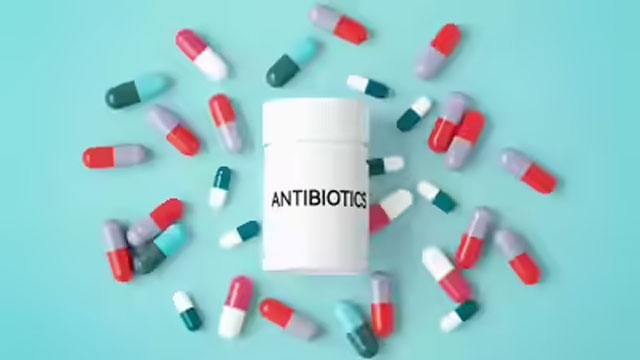Daijiworld Media Network - Mumbai
Mumbai, Nov 27: Antibiotic resistance is rapidly emerging as one of the most serious global health challenges, driven largely by the overuse and misuse of antibiotics. These medicines, intended to treat bacterial infections, are becoming less effective as bacteria adapt when antibiotics are repeatedly taken for minor illnesses or without proper medical guidance. The result is that routine infections are harder to cure, complications increase, and treatment becomes more expensive and time-consuming. According to the World Health Organization (WHO), antibiotic-resistant infections are steadily rising worldwide, particularly in countries where antibiotics are easily accessible without prescriptions. Common conditions such as urinary tract infections, respiratory infections, and wound infections are increasingly difficult to treat, making understanding and preventing antibiotic resistance critical for safeguarding public health.
Excessive antibiotic use without medical supervision is now a major global health concern. When antibiotics are misused—taken repeatedly for minor illnesses or incorrectly—bacteria gradually develop resistance, making the medicines ineffective. The WHO reported that by 2023, nearly one in six bacterial infections globally were resistant to commonly used antibiotics. Everyday infections like urinary tract infections, respiratory infections, and bloodstream infections are increasingly showing resistance to multiple drugs, making treatments more complex, costly, and prolonged. Resistance develops over time due to incomplete courses, unnecessary use, and misuse of antibiotics, underscoring the need for awareness and caution.

The WHO Global Antibiotic Resistance Surveillance Report 2025 shows that Southeast Asia, including India, has some of the highest rates of antibiotic resistance worldwide. In India, nearly 70% of bloodstream infections and over 78% of E. coli infections are resistant to commonly prescribed antibiotics. This forces doctors to resort to stronger, costlier drugs, which may have more side effects.
A major factor is uncontrolled access to antibiotics. Many people buy medicines directly from pharmacies without prescriptions, often for viral illnesses such as coughs, colds, and fevers, which do not require antibiotics. Such misuse not only kills beneficial bacteria but also allows resistant bacteria to thrive. Another contributing factor is the incomplete use of prescribed courses. Stopping medication early allows surviving bacteria to mutate and become stronger, spreading resistance within communities.
Antibiotic resistance poses serious long-term risks for individuals and communities. Common infections may become life-threatening, minor wounds may take longer to heal, and respiratory infections can become severe. Vulnerable groups like older adults, children, or post-surgery patients are at heightened risk. Routine medical procedures, including surgeries, dental treatments, and childbirth, could also become riskier if antibiotics fail to prevent infections. WHO warns that without urgent action, antibiotic resistance could become one of the largest health threats globally in the coming decades.
Combating antibiotic resistance requires responsible use and increased awareness. The key measures include:
• Avoid unnecessary antibiotics: Do not take antibiotics for minor illnesses like colds, coughs, fevers, or headaches, as these are usually viral. Always consult a doctor for proper diagnosis.
• Complete prescribed courses: Even if symptoms improve, finish the full course to ensure all bacteria are eliminated and prevent resistance.
• Do not share medicines: Avoid taking antibiotics prescribed for someone else or for another illness, as this increases the risk of incorrect dosage and resistance.
• Maintain good hygiene: Regular handwashing, clean surroundings, safe food handling, and minimizing exposure to infections can reduce the need for antibiotics.
• Vaccination: Immunisation prevents bacterial infections, reducing reliance on antibiotics.
Public awareness and responsible usage of antibiotics are crucial to controlling the rise of resistant bacteria and protecting future generations from a global health crisis.